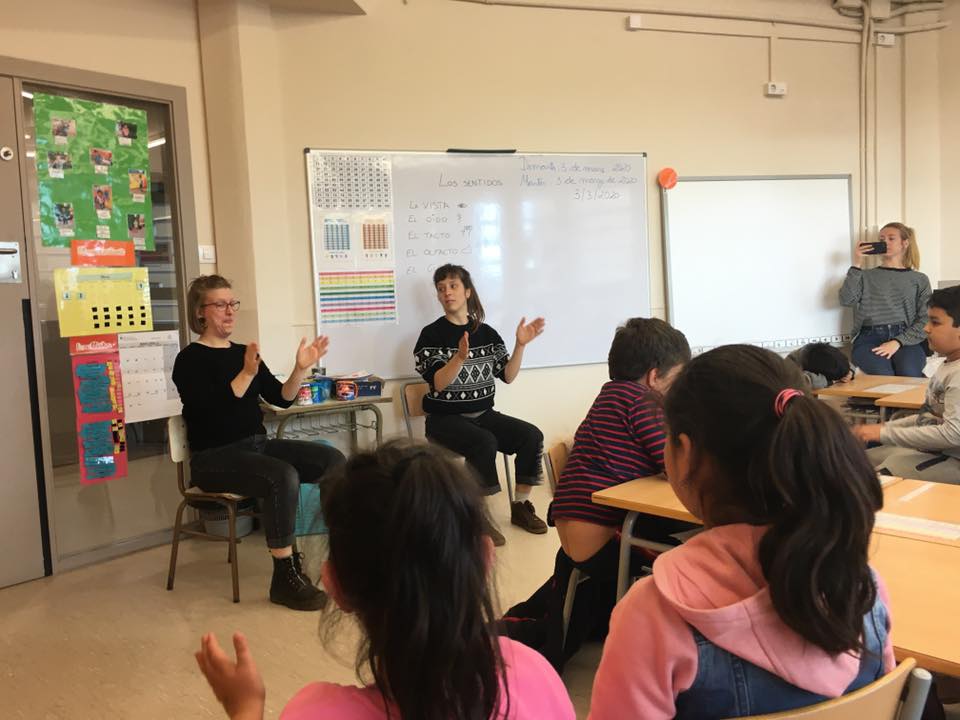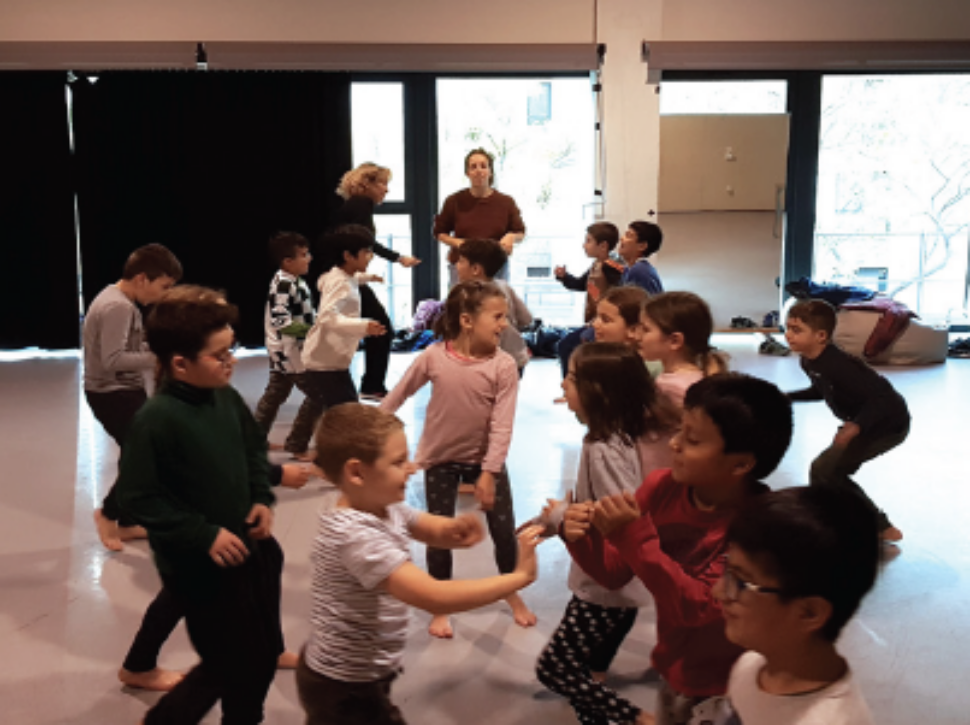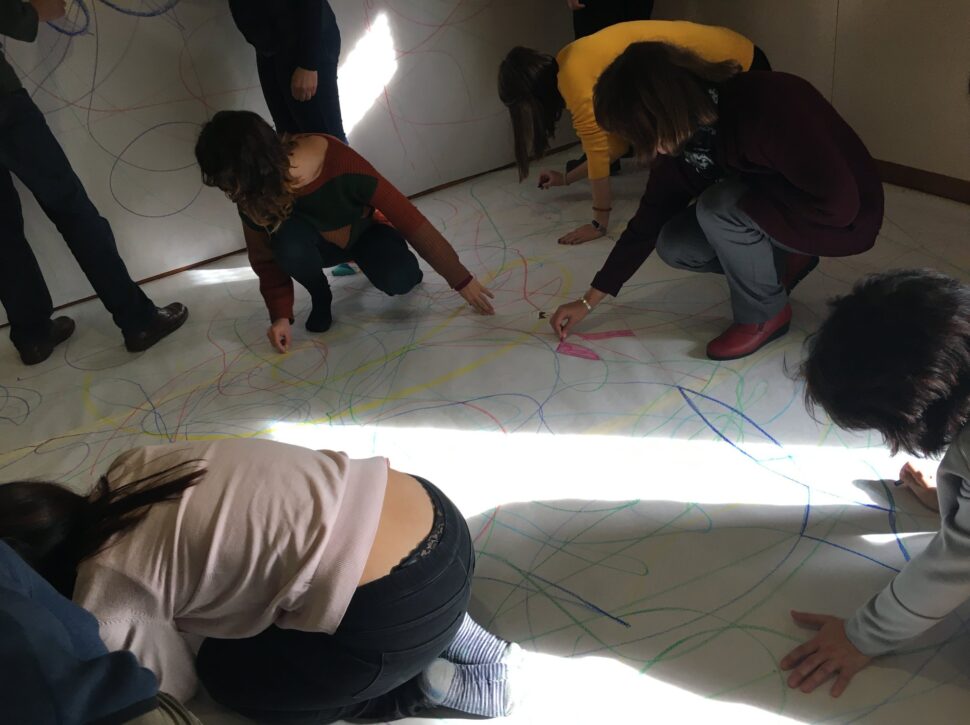Workshop by Iniciativa Sexual Femenina (Elisa Keisanen and Élise Moreau) with primary students from Escola Seat, Escola Bàrkeno, and Escola Enric Granados.
What is a space where we can be free, a space where we can play without doubts or limits? And why is this kind of space or place so important? Why is it essential to create these spaces in schools? And how can movement be introduced? How can the body be allowed to be free in a normative context (movement without explosions, movement without surprise)?
The ideal setting is one where children, teenagers, and adults alike can enjoy play with no outcomes or goals. For adults, it’s very difficult to focus only on the process, rather than the result. We’ve also noticed how hard it is to create a free space without worrying about what other adults think —especially when working with children. The sense of responsibility we feel towards children becomes overwhelming. Still, what drives us forward is the intention to create free spaces for discovery. We, as artists, have the tools to seek out those moments of freedom. We know this from experience: we can play, even act foolishly —we are adults, and we know how liberating that can be. We can use these tools: musicality, playful interaction with materials, humor, irony, surprising movements, the unexpected use of voice and words.
The Graner 2019–20 educational program (Contact Zone) was part of the Caixa d’Eines initiative, promoted by the Pla de Barris de Barcelona, which integrates artistic practices into the school curriculum to reduce inequalities among the city’s neighborhoods.







